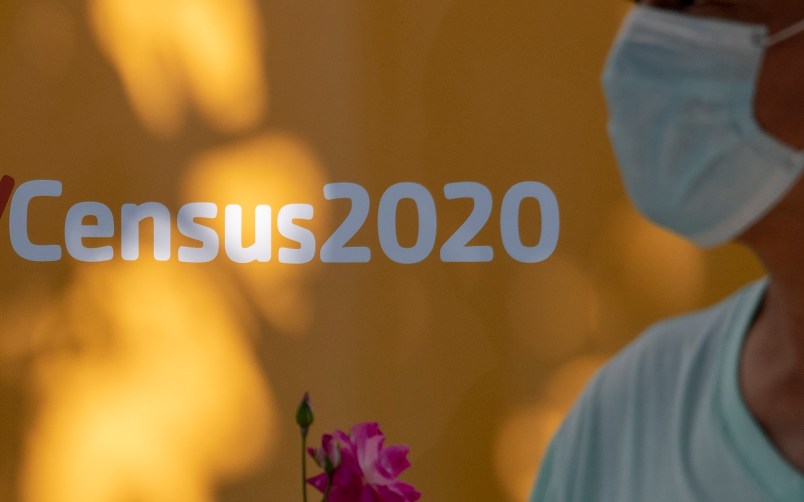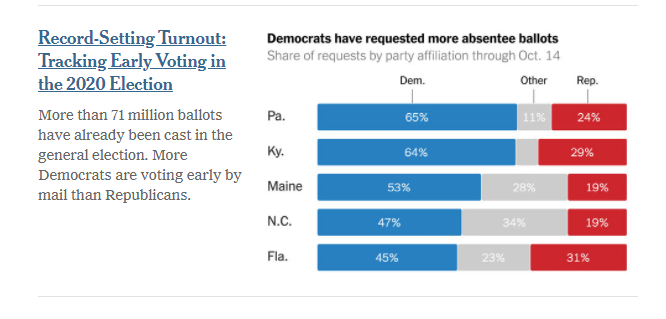The voting rights groups and local governments that sued the Trump administration over its efforts to truncate the census filed an amended complaint Tuesday making new allegations about how the count is being rushed.
The latest lawsuit pulls together some of the revelations that came out of the initial round of litigation, which focused on the administration’s move to cut off the census’ data collection a month earlier than was dictated by a schedule the Census Bureau laid out at the start of the pandemic.
The challengers are asking for an order from the court that the Census Bureau go back to its plan, before the count was truncated, of spending 5-6 months on the processing and review of the data the survey collected.
Under the current timeline to finish up the count, the Bureau will only have two and half months to complete that phase.
The new complaint claims that the administration’s stated reason for expediting the count — ostensibly so that the Census Bureau can meet a statutory end-of-the-year deadline for delivering congressional apportionment data to the President — was merely a pretext.
“The true motivation for the severely truncated deadlines in the Replan is and has always been a timeline that gives this President control over the final apportionment numbers,” the lawsuit alleges.
Specifically, the lawsuit points to an alleged desire by the administration to guarantee that President Trump will still be in office to implement a new apportionment policy that would exclude undocumented immigrants from the count, which determines how many House seats each state gets.
Two courts have already declared the anti-immigrant policy illegal, but the Supreme Court will have the final word and is hearing arguments on the issue late next month.
The upshot of expediting the count so that Trump can implement the policy, even if he loses next week’s election, is that rushing it will cause an undercount of minority populations, the lawsuit alleges.
That undercount will decrease the political representation allotted to some of the same states that also are at risk for losing House seats due to the anti-immigrant apportionment policy, according to the lawsuit.
In the first round of the litigation — which ultimately went up to the Supreme Court — the administration claimed that the Bureau had hit all the appropriate counting benchmarks that would justify winding down the in-field counting operations a month early.
The latest complaint alleges that the administration has inflated the success of its counting operations — including non-response follow up (or NRFU), which is how the Census Bureau counts households that do not respond to the survey on their own.
It claims that the Trump administration reworked the quality standards that it’s supposed to use to measure the extent and accuracy of the count.
“The claimed 99% completion rates as of October 15 are misleading and fail to measure up adequately to past censuses,” the lawsuit alleges.
The amended complaint is before the same judge, U.S. District Judge Lucy Koh, of the Northern District of California, who handled the initial challenge to the rushed count. She also sat on a three-judge panel that declared the anti-immigrant apportionment policy illegal and unconstitutional.
For the most part, during the initial phase of the rushed count litigation, Koh sided with the challengers. At one point, she accused the administration of violating her orders in the case when it tried to shut down counting on Oct. 5 after she ordered that the count could not be ended on Sept. 30.
She also demanded that the administration turn over several internal records that showed that career bureau experts had warned Commerce Secretary Wilbur Ross, who oversees the decennial census, about the risks to the survey’s accuracy if they were forced to deliver the apportionment data by Dec. 31.
Meanwhile, her court fielded dozens of unsolicited messages from enumerators and other census workers who alleged that they were being instructed to cut corners in the NRFU operations.
Some of these revelations make an appearance in the latest complaint.
An appeals court largely upheld Koh’s approach, and agreed with her orders that data collection should continue through Oct. 30 — the data the Bureau had planned after COVID-19 severely delayed the launch of the census.
But the administration then went to the U.S. Supreme Court, and secured an order from the justices ultimately letting them shut down counting on Oct. 15.
The Census Bureau has since hedged about its ability to meet the Dec. 31 deadline to deliver the apportionment data to the President. The latest complaint alleges that the hedging shows that the administration never really viewed that date as binding, and was merely using it as a pretext to guarantee that the count was on track to wrap up while Trump was still in the office.
“There are good reasons to think that the new (not yet revealed) target date will depend on the results of the upcoming election. If President Trump does not win, Plaintiffs believe that the Secretary will ultimately submit his report after the December 31 statutory deadline but before January 10—so that this President is able to implement the Presidential Memorandum and submit that revised apportionment count before he leaves office,” the amended complaint says.
Read the lawsuit below:







Sounds like its census do-over time.
Too bad we can’t do-over the last 4 years. This man and his maladministration gives me a headache.
Interesting name for poll “watchers”

And this screen shot of a NYT article might bode well if it corresponds to what the total vote looks like…assuming mail ins make it!

Yeah, I’m pretty sure the new Congress will have something to say about whether or not to certify Dumpty’s census data.The Constitution only requires that a count be made every ten years; the apportionment part is under Federal law.